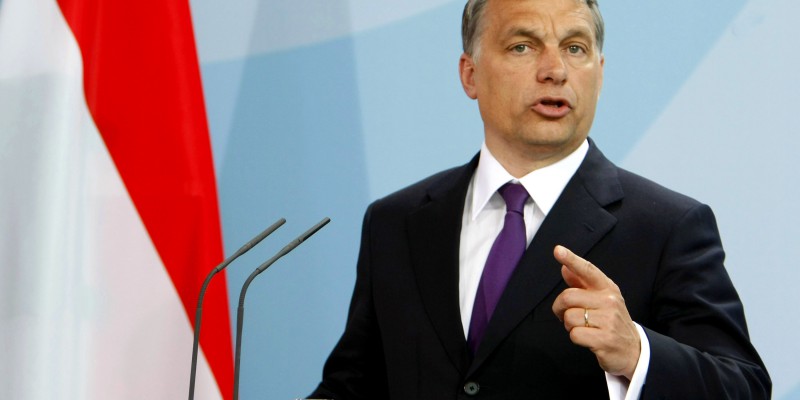In 2010, the Hungarian prime minister passed a series of laws, giving excessive control over all private media to the government, writes Peter Bajomi-Lazar, a senior research fellow at the University of Oxford.

The case
Soon after its victory at the 2010 elections, Hungary’s new Christian-conservative government, headed by Prime Minister Viktor Orbán, passed a series of media laws resetting the country’s entire media landscape. The new regulation, passed without consultation with either the opposition parties or professional bodies, established a media authority headed by a Media Council, whose members have all been delegated by the ruling Fidesz party; the chair of the council has been directly appointed by the prime minister. The authority now supervises all private media, including the print press, radio and television, and the internet. It has the power to allocate broadcasting frequencies, to impose fines, and to distribute funding.
The new regulation also created a united Public Service Foundation to manage all public media, including Hungarian Television, Hungarian Radio, Danube Television, and the Hungarian News Agency. The chair of the foundation has been delegated by the media authority’s council. All public broadcasters’ news bulletins are now produced by the national news agency, and display a pro-government bias. Many of the former editors and managers of public broadcasters have been sacked, and Fidesz loyalists have been appointed to replace them. The new supervisory structure is constructed in such a way that the ultimate decision-making power lies with Annamária Szalai, the chair of the Media Council, herself directly appointed by the prime minister for a period of nine years.
Freedom House’s Nation’s in Transit 2011 report observes that the new media regulation “drastically curtailed the independence of public-service television and radio broadcasters, and established a new authority over broadcast media, print publications, and the internet”, which it describes as an “alarming concentration of political power over the media”. Under the pressure of international organisations, including the European Union, some of the controversial provisions of media regulation were amended. These amendments, however, did not affect the composition of the Media Council, nor did they change the newly established supervisory structure of public service broadcasters.























reply report Report comment
Realmente asusta pensar que hoy día un gobierno pueda tener incluso un mínimo control sobre cualquier forma de periodismo. El presidente húngaro, Viktor Orban, lleva un par de años dando muestras de una serie de ideas. discursos y reformas no ya conservadoras, si no cercanas a las de su homólogo bielorruso, presidente de la”última dictadura en Europa”. Si no fuera por la trascendencia de esta y otras de sus decisiones, esto podría pasar por cómico. Básicamente, anuncia que va a controlar la prensa, con todo lo que ello conlleva. La libertad de prensa es la libertad de un país, y sin ella un país como Hungría dará un enorme paso atrás en su camino democrático. Asusta, da miedo, la proliferación de éste y otros líderes democráticos por todo el viejo continente, que con ultra conservadoras ideas como ésta atraen inexplicablemente la atención de muchos votantes en un periodo de “crisis” (y no sólo económica, sino también de valores). Sin embargo, no hay que olvidar que realmente, y por poner un sólo ejemplo, en España la libertad de prensa no es la que debería ser. Hay mucho político influyendo en las decisiones finales de lo que se escribe, mucho miedo a -a veces- decir todo lo que se piensa, etc. No hace falta cumplir con un papel dictatorial para cambiar un artículo, reducir la crítica en otro, recomendar noticias… Hungría está dando un paso hacia la dictadura periodística. Pero la lectura de éste artículo me lleva a reflexionar no sólo acerca de esta nefasta decisión, sino de sin en España, así como en otros países netamente democráticos, la prensa es realmente libre.
reply report Report comment
I think that in terms of free speech this is a step backwards – it is scary that media is in the governments hands, and that the Media Council stays the same for nine years (seeing the fact that he or she is appointed by the prime minister).
The media should be a tool in favour of the public, not of the government. If the media is regulated by the government then they can make us think whatever they want – broadcast what they want us to think, and hide from us what they do not want the public to know. That goes against the entre purpose of the media, which is that of being a “watchdog” over various institutions (including the government). The public has the right to know what the government is up to, and have the right to hear objective criticisms about it – it is then up to them what to believe.